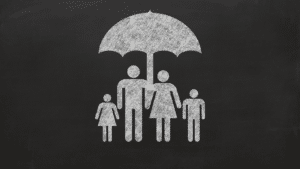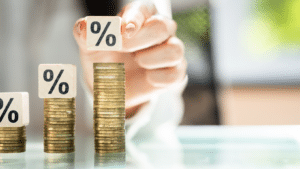
There is definitely a great deal to discuss on the current housing market. Despite the volatility and higher interest rates, many of you are still in the market to purchase a new home. Whether you’re a first time home buyer or you are upgrading from your “starter” home, there are many tips you can implement and mistakes to avoid to improve your financial situation and ensure the process is more seamless. So let’s dive in.
As you know, buying a home is a major purchase, maybe even the largest purchase you will make in your lifetime. So, it’s key that your financial house is in order prior to applying for a mortgage and taking on a large loan. So, first and foremost, ensure that your credit score and report are in good shape. Why? Because your credit is the lifeline of your financial life, and when it comes to purchasing a home, lenders will check out your credit to determine what interest rates you will be able to capture. If your credit is not so great, it may be possible you have a higher and more costly interest rate, making your home purchase more expensive than it needs to be. So, make sure you are paying your bills on time, always pay at least the minimum, pay down existing debt, and open multiple lines of credit, taking on “good debt”, that you can pay back responsibility. Check out our other blogs for more information on your credit score.
Another tip to keep in mind when preparing to purchase a home is to ensure your emergency fund is sufficient and you have saved enough for the downpayment and fees. Given where current interest rates stand, your home affordability due to higher rates may look different than if you did the same exercise back in 2020, for example. So what does this mean? Well, buying a home comes with tons of unexpected expenses. Especially if it’s your first time, having only enough cash for the down payment and fees most likely won’t be enough to cover all the expenses coming your way. So, understand the all in costs, run an analysis on whether that fits into your financial budget and picture, and decide if you have an emergency fund sufficient to cover not only the home purchase itself, but remember about items such as furniture, wifi, utilities, and more. You don’t want to tie up all your cash in non liquid investment vehicles when you might need it for something else in the near future. So, consider opening a high yield savings account that you can park your cash reserve in, while also earning additional interest. We also recorded a great podcast episode with senior mortgage consultant, Jody Eichenblatt of PHM Loans, on his thoughts on the spring housing market and some best practices for those of you shopping.
Along with saving enough cash for your big purchase, having a realistic and achievable budget is extremely important as well. We oftentimes see individuals stretch themselves too thin with their home purchase, making it more financially stressful to reach their other financial goals. Especially given where the economy is with inflation, we’ve been recommending individuals to re-visit and tweak their budgets. So, separating your wants versus your needs and really breaking down your financial goals is a great way to determine what your budget should be. We also recommend working with a financial advisor to dive deeper into this budget and build a strategy to hit all your goals in life. Purchasing a home is such an exciting and fulfilling achievement, so we want to make sure you go about it in the best way possible. We will continue to track the housing industry and mortgage rates as the Federal Reserve hopes to be able ot cut interest rates in the back half of this year and report back how this will impact you. If you have any questions, email info@shermanwealth.com.



